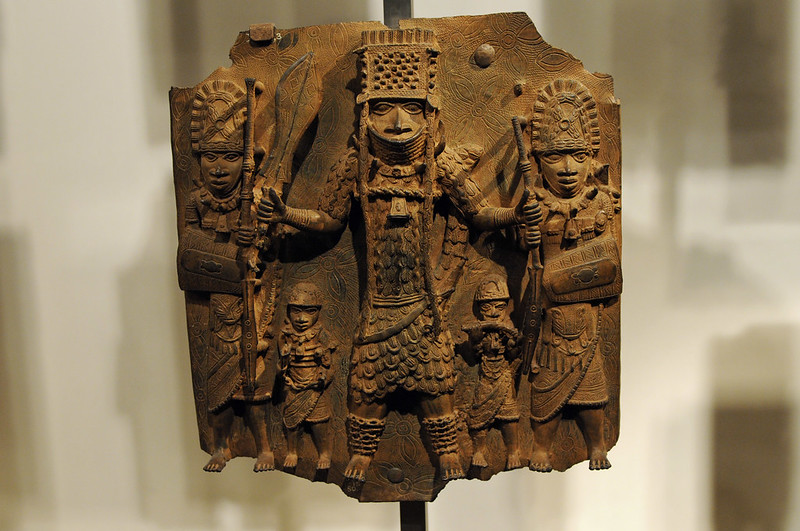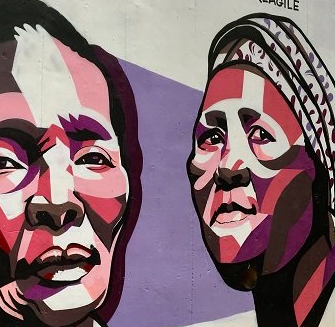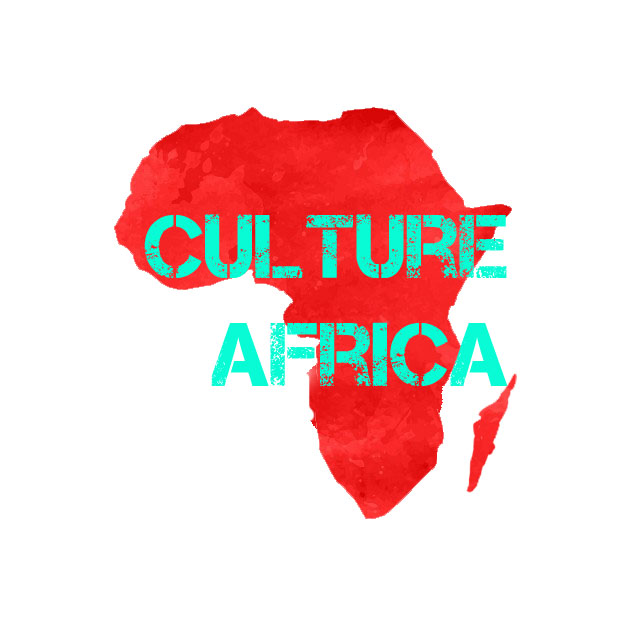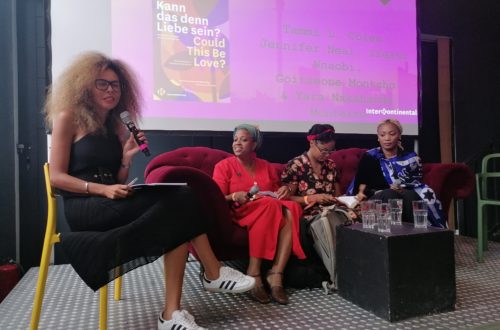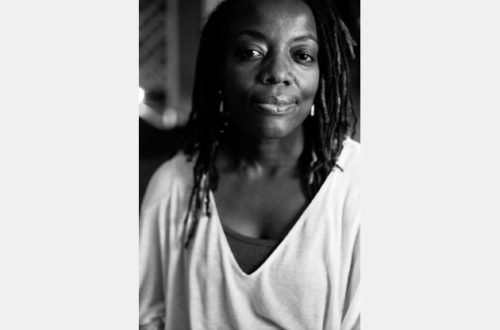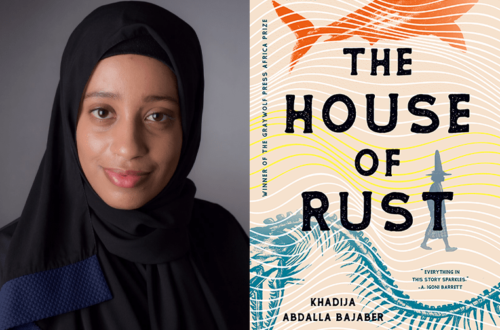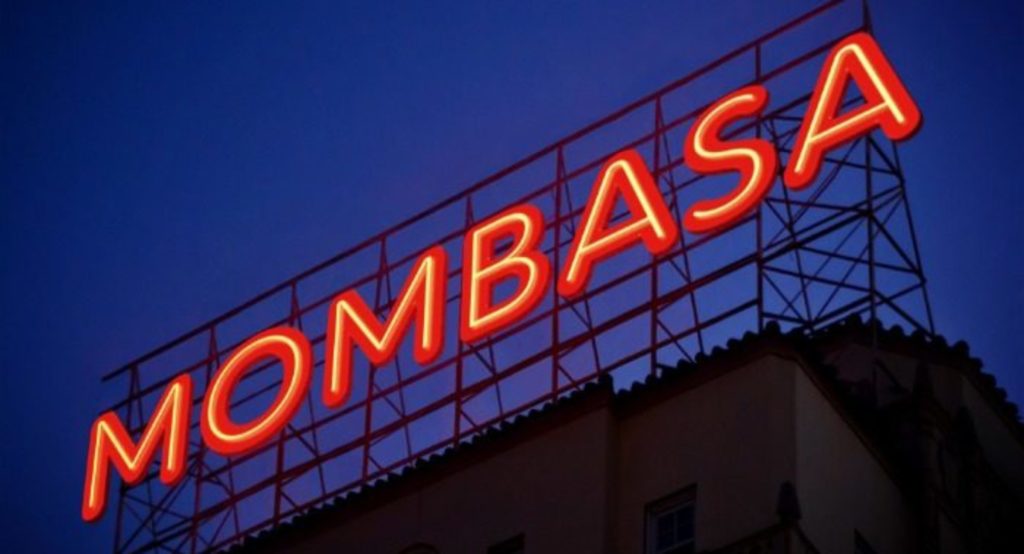
Heroe Book Fair 2021 in Mombasa – Ein Bericht – A Report
Vom 22.3. bis 26.3. 2021 fand in Mombasa, Kenia die zum ersten Mal die Heroe Book Fair 2021 statt. Cultureafrica.net war nicht nur Partner der Buchmesse, sondern auch vor Ort. Eine Bilanz.
From 22.3. to26.3.2021 the heroe book fair took place for the first time in Mombasa, Kenya. Cultureafrica.net was not only partner of the book fair, but also on site. A balance. For english version please scroll down.

Die Idee
Es war eine Idee. Eine Buchmesse für Ostafrika. Entstanden im Norden Kenias, in Nakuru. Gründerin Lorna Likiza hatte die Flamingos vom Lake Nakuru im Sinn, als sie der Messe ihren Namen gab: Heroe Book Fair. Heroe ist das Swahili Wort für Flamingo. Und davon gibt es am lake Nakuru reichlich. Dort, in Nakuru, sollte die Messe 2020 stattfindende Idee war, Schriftstellerin en, Verlage und Besucherinnen an einem Ort zusammen zu bringen. Was in europäischen Ohren als eher gewöhnlich klingt, ist gerade in Regionen wie Kenia eine Herausforderung. Dazu muß gesagt werden, daß der Fiction Bereich, der Roman, Shortstory und Gedichte zwar landesweit und auf dem Kontinent verbreitet sind. In den Buchläden beherrschen allerdings der Nonfiction Bereich, also Sachbuch, Schul- und Universitätsbücher den Markt. Die Literatur in der Nische, gerade außerhalb der Hauptstadt, das ist in vielen afrikanischen Ländern die Realität. Und die besondere Herausforderung für eine neue Buchmesse außerhalb Nairobis. Und dann noch Corona. Konnte das gut gehen?
Bedingt durch die Pandemie musste die Messe immer wieder verschoben werden. Die finanziellen Mittel wurden knapp, dann ganz gestrichen. Doch Lorna Likiza gab nicht so schnell auf.
Eine neue Idee, ein neuer Ort wurde gefunden: das Gelände der Alliance Francaise in der kenianischen Küstenstadt Mombasa war dieser Ort. Eine Buchmesse unter Palmen, nicht der schlechteste Platz für eine derartige Veranstaltung. Das Thema der Messe war „belonging“, Zugehörigkeit. Ein Motto, daß viele SchriftstellerInnen und Besucherinnen umtreibt und so den Nerv der Zeit getroffen hat.

With a little help…
Mit der finanziellen und logistischen Unterstützung mehrere Partner, darunter die Alliance Francaise, der Französischen Botschaft, der Belgischen Botschaft, dem deutschen Goethe-Institut, Cultureafrica und dem örtlichen Hekaya-Institut konnte das Projekt gestemmt werden. Das Programm wurde mit der in der Woche stattfindenden „Woche der Frankophonie“ abgestimmt. Und: die Messe fand statt! Buchmessen-Leiterin Lorna Likiza: „Dass die Messe trotz aller Widrigkeiten der Corona-Pandemie stattfinden konnte, grenzt an ein Wunder. Bis zuletzt war nicht ganz klar, ob die kenianische Regierung die Corona-Maßnahmen verschärfen würde und die Messe abermals abgesagt oder verschoben werden muß. Alle Programmpunkte konnten umgesetzt werden. Abstriche gab es beim Publikum. Das durfte nicht zu zahlreich sein, einer der Auflagen.“
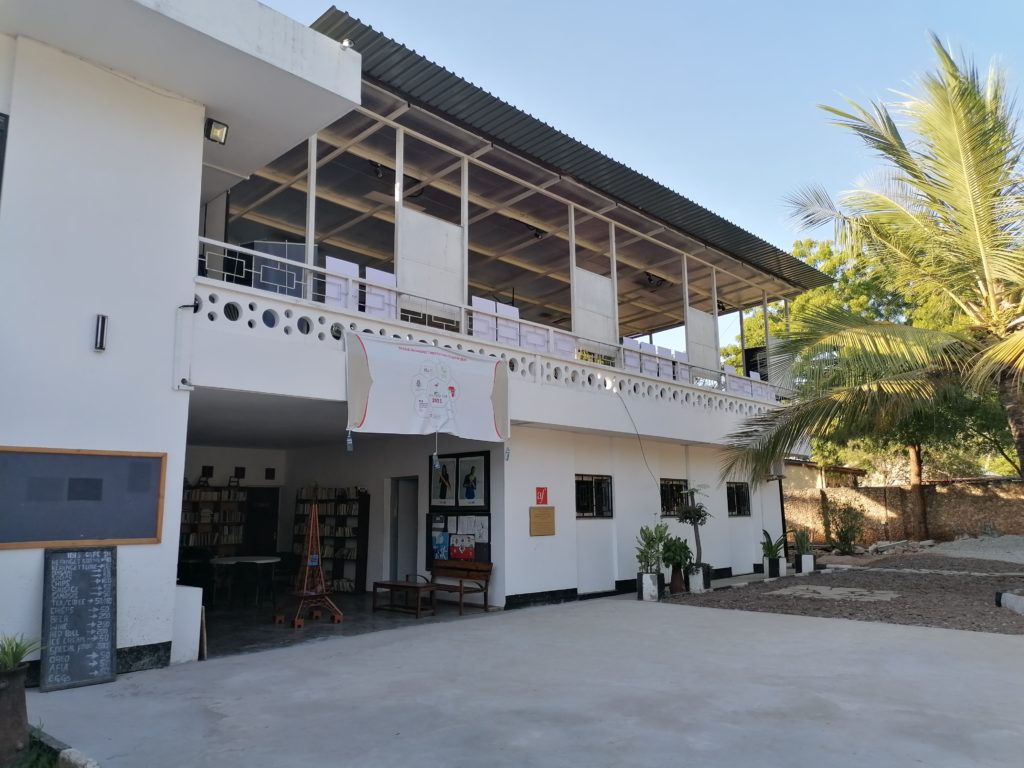
Glückliche Fügung: Am letzten Tag der Messe wurde dann doch noch eine Verschärfung der Maßnahmen in Kenia verkündet. Es war ein glücklicher Zeitpunkt. Eine Woche später hätte es anders aus gesehen. Denn trotz des Hygiene-Konzepts wäre es nun nicht mehr möglich gewesen. So aber fand sie statt.
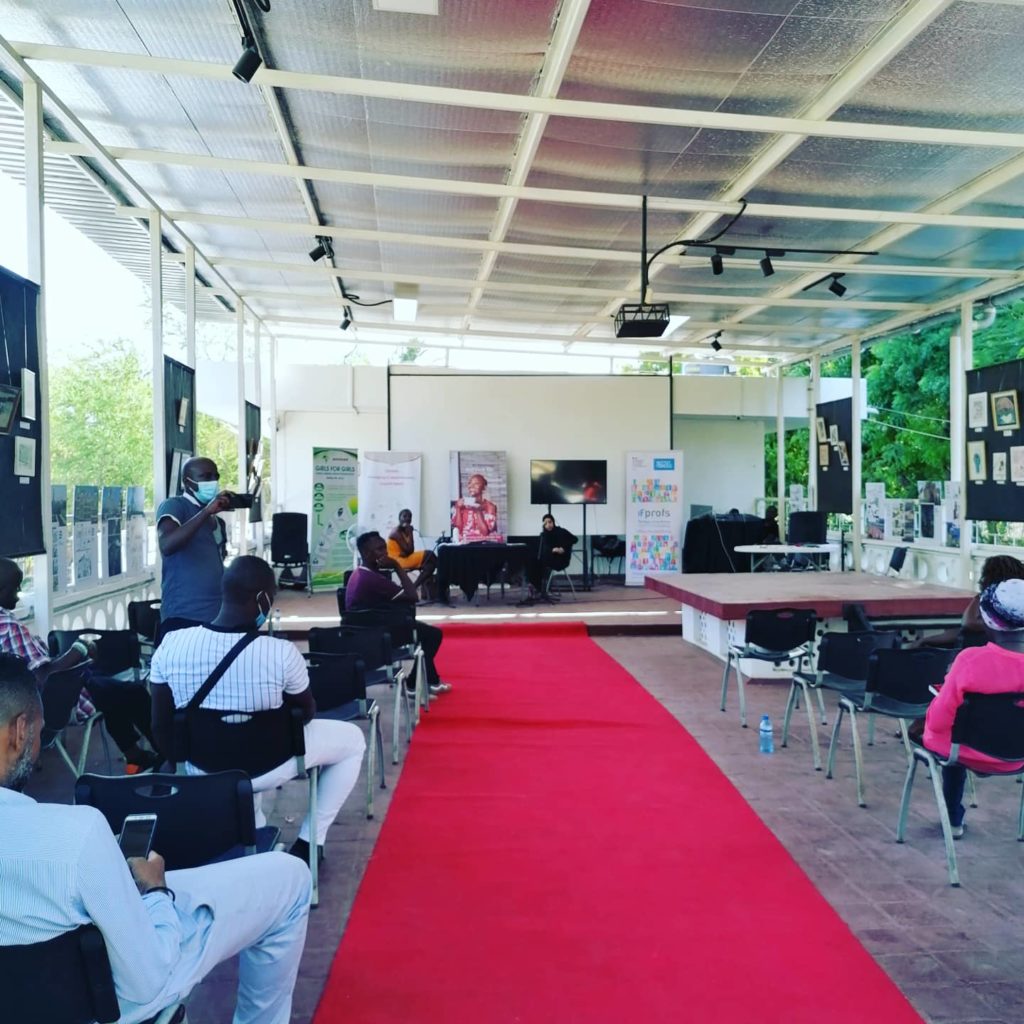
Das ambitionierte Programm der Messe, nämlich die Vielfalt der ostafrikanische, teils auch der panafrikanischen Buchwelt in seiner Vielfalt zu präsentieren, hat auch unter den teilnehmenden SchriftstellerInnen eine gute Resonanz gefunden. Lorna Likiza: “Dass alle angekündigten Programmpunkte stattfanden, die teils aufwendigen virtuellen Paneldiskussionen mit Autorinnen aus Afrika und der Diaspora klappten und es keine Absagen gab, zeigt mir, wie sehr die Autorinnen die Existenz einer Buchmesse in Afrika schätzen“. Aber auch die Themen der Messe waren gut gewählt.
Aber es fühlte sich auch an, wie eine richtige Messe; es gab Besucher, man begegnete und sprach mit AutorInnen, es gab Diskussionen und auch: Bücher! Echte Bücher zum kaufen und schauen. Zum Lesen und Notieren.Von bekannten Verlagen, kleinen Verlagen und im Selbstverlag. Und die kunstvoll gestaltetenBücher von der schon legendären Themina Kader, die trotz ihres Alters von über achtzig Jahren ständig präsent war und ihre Kunst im Forum präsentierte und die Kunstbücher stolz vorstellte. Offiziell wurde es jeden Morgen, da wurde zum Messetag die Nationalhymne gespielt. Etwas ungewöhnlich aber doch auch feierlich.
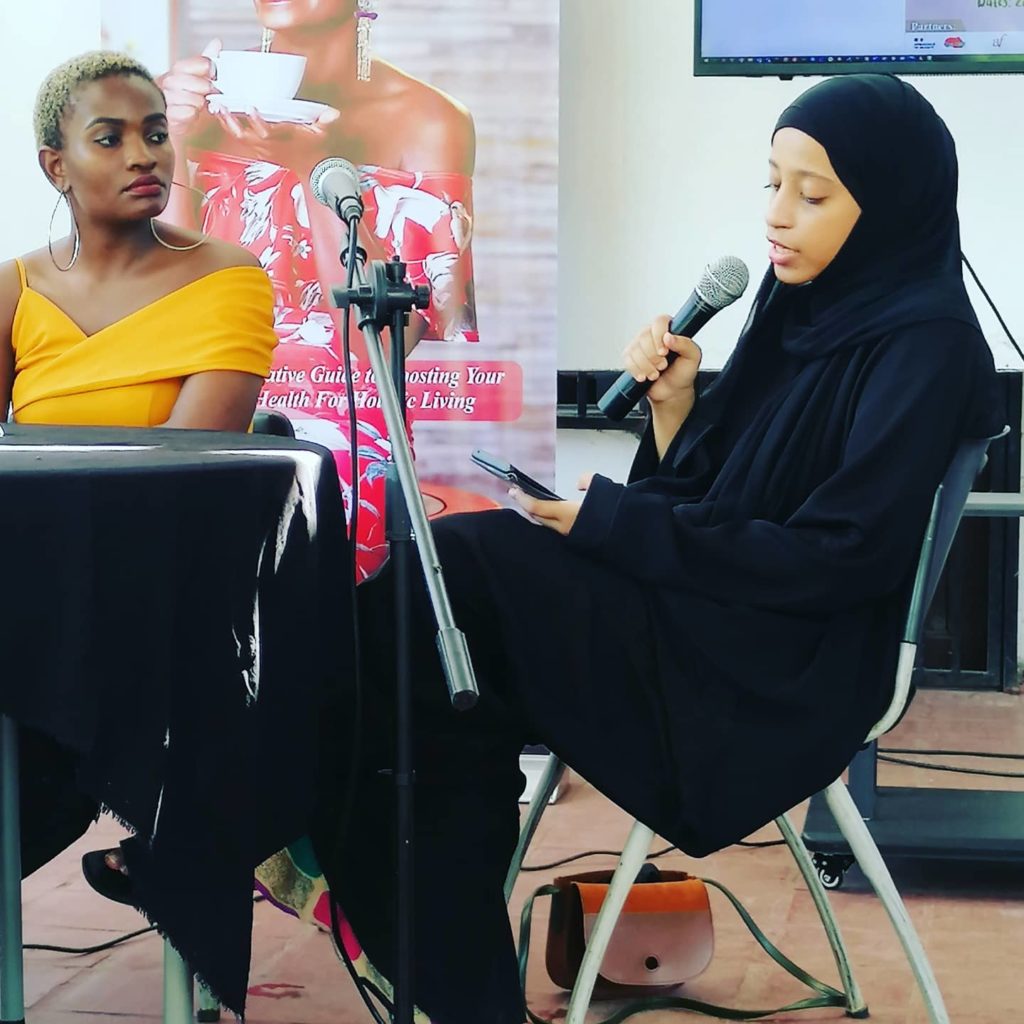
Die Themen der Messe
Das Herzstück der Messe waren die Lesungen und Paneldiskussionen. Sie gab es zu sehr unterschiedlichenThemen. Alle stehen übrigens auch über den Youtube Channel der heroe book fair zum Nachhören und Nacherleben zur Verfügung.
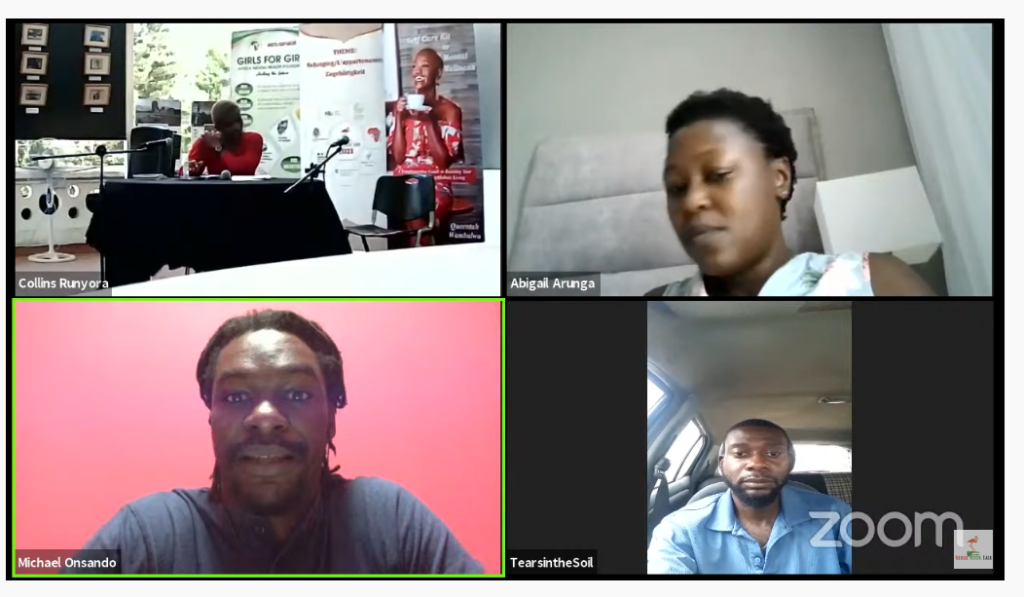
Es begann am Montag mit dem Thema: „The Part Ethnicity Plays In African Literature“ .Teilnehmer waren T.J. Benson (Nigeria), Sihle Ntuli (South Africa) und Caroline Numuhire (Ruanda). Leiter der Diskussion war: Ibrahim Babatunde Ibrahim (Nigeria ).
Das zweite Panel leitete engagiert Audrey Shipp, Gründerin der US-amerikanischen Literaturplattform Decolonial Passage aus Los Angeles. Ein Forum für Diaspora Autorinnen.
Thema: The Impact of Race and Identity on Black Literature/Die Auswirkungen von Rasse und Identität auf die Schwarze Literatur.
Auch hier ein internationales Feld von TeilnehmerInnen: Brenda J. Cyprian “Shadow Resistance” – USA, Rochelle Riley “The Burdens” – USA, Hassan Ghedi Santur “The Youth of God”, Canada, Tete Loeper “Barefoot in Germany”, Deutschland, Nathaniel Annan Dadson “Like Apples of Gold in Pictures of Silver” – USA.
Die AutorInnen lasen alle aus ihren Büchern. Das machte es den Zuschauern und Hörerinnen einfacher, dem Gespräch zu folgen.

Weitere Paneldiskussionen gab es zum Thema: The State of Poetry Translations in Africa mit
Panel Moderator Richard Ali aus Nigeria. Teilnehmende Autorinnen waren: Takudzwa Goniwa – Zimbabwe, Michael Onsando – Kenya, Abigail Arunga – Kenya, Jaliya the Bird – Angola . Die Woche der Frankophonie war Anlaß für das Panel: Sind frankophone SchriftstellerInnen aus Afrika unterrepäsentiert? Panel Moderatorin war : Maeline Le Lay vom Institut Franchise aus Nairobi. Mit diskutierten: Kristen Stern – Herausgeberin, “Africa In Words” – USA, Ernestine Vera KG– Burundi, Max Lobe – Schriftsteller, Schweiz, Edwige Dro – Mitgründer, Abidjan Lit – Elfenbeinküste, Mathe Kisughu – Schriftsteller und Herausgeber- DR Kongo.
Die finale Panel Diskussion war zum Thema: Publishing in Africa and the Black Diaspora.
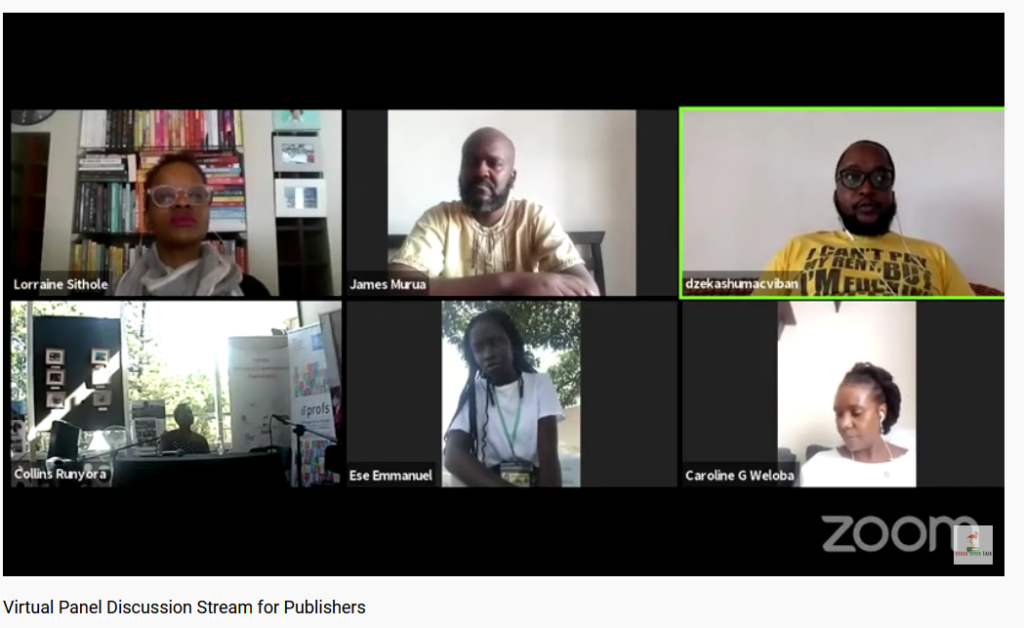
Panel Moderator war der bekannteste Literatur-Blogger Afrikas, James Murua – Kenya, Mit dabei: Azafi Omoluabi – Parressia Publishers – Nigeria, Ese Emmanuel – Bright Lights Books London, UK, Caroline Gatwiri Weloba – Pearson East Africa – Kenya,, Lorraine Sithole – RedSoil Publishers – South Africa, Dzekashu MacViban – Bakwa Books – Kamerun.
Die Keynotes
Zwei Hauptrednerinnen zur Messe und gab es. Die sogenannten Keynotes gaben diesmal: Scholastique Mukasonga aus Ruanda/Frankreich, Autorin des Bestsellers „Notre Dame du Nile“ zum Thema “Belonging”. Und Salma Abdulatif, Autorin aus Kenia gab die zweite Keynote: “Finding Home beyond Stereotypes & Identity Crisis”. Auffallend viele Frauen prägten die Messe. Nicht nur bei den Keynotes. Sie geben auch insgesamt in der modernen afrikanischen Literatur den starken Ton an. Dort hat mittlerweile Chimamanda Ngozi Adichie eine Leuchtturmfunktion inne. Es haben aber auch Scholastique Mukasonga, Petina Gappah oder Oyinkan Braithwaite, Yvonne Owuor und viele mehr den Sprung in die internationale Literaturwelt geschafft.
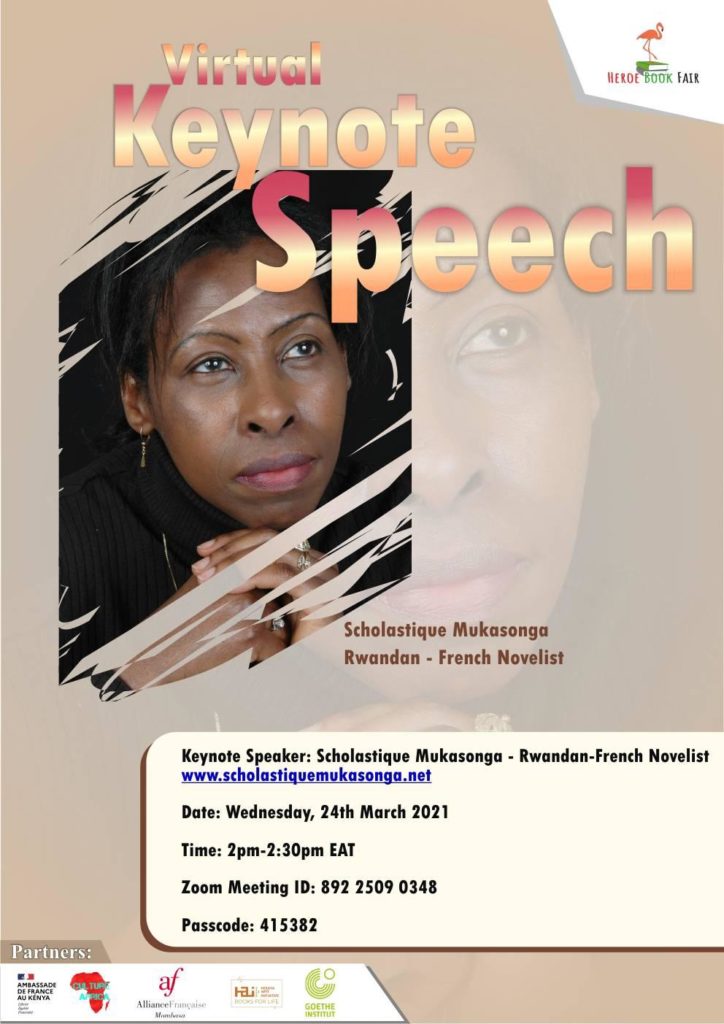
Bei den Book Launches waren fast alle Autorinnen anwesend. Nur Max Lobe war aus der Schweiz virtuell zugeschaltet. Drei sogenannte Motivationsbücher und die literarische Reise “A long Way to Douala” wurden erstmals dem Publikum vorgestellt. Sehr engagiert war die die Präsentation von Boniface Nyamweya, der “Her Question Pills” als Almanach des Mannes es. Vom girls4girls Projekt stellte Queentah Wambulwa das Self-Care Kit to Mental Health vor, ein engagiertes Buch, das Menschen eine Hilfe bei seelischen Problemen gibt.
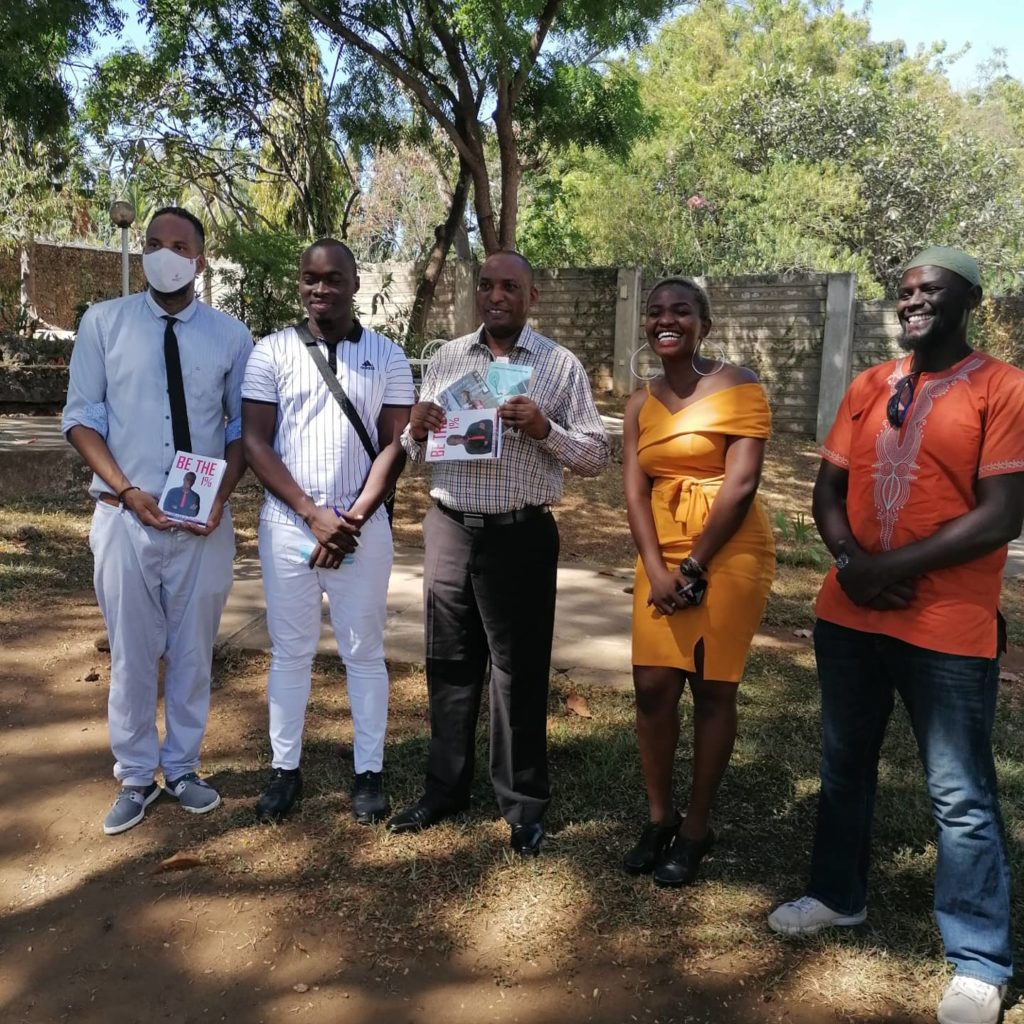
Und zwei Bücher, die ebenfalls den Glauben an den Erfolg im Menschen, auch nach Rückschlägen zum Thema haben: “Be the 1%” von Mohammed Otieno und “Make it Achievable” von Alice Nyamai. Das literarische Thema der Messe, “belonging” fand in dem von Lorna Likiza verfassten Essay mit gleichem Namen ihr Echo. In einer Lesung mit anschließender engagierter Diskussion über ein teils unangenehme Themen wie: Respekt, Ethnische Zugehörigkeit, Minderheiten, Hautfarbe und Diskriminierung. eine andere Diskussion fand vor Ort über die Rolle der LGBTQ in der afrikanischen Literatur statt. Cultureafrica präsentierte eine Bestandsaufnahme der afrikanischen Kultur in Deutschland.

Lesungen, Echt oder virtuell, die “Book Readings” fanden von Autorinnen aus ganz Afrika statt. Short Stories aus der Reihe “The Ogre” von Samwel Ochand zum Beispiel. Prominent zugeschaltet war Ingrid Arlington aus Südafrika, die aus “Kinky Roots” las. An zwei Tagen beteiligten sich auch Schülerinnen aus der Region Mombasa und virtuell aus Deutschland und der Schweiz an den Lesungen. Die Future Hope of Montessori School war mit vielen Beteiligten vor Ort und las und diskutierte engagiert vor Ort.
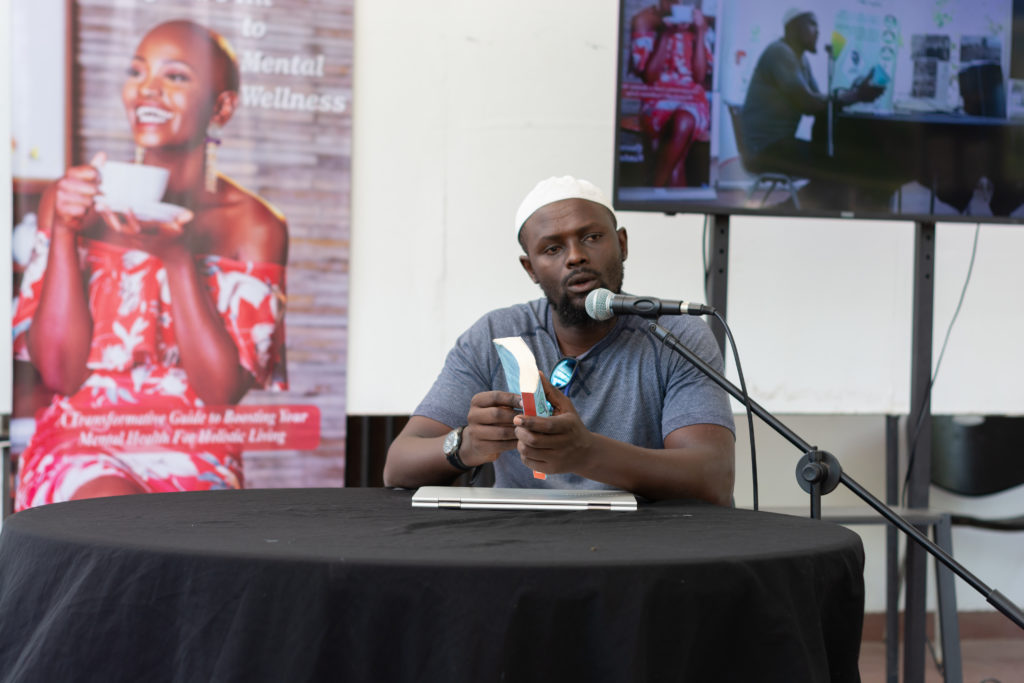
Den Bereich der Swahili-Kultur und die Rolle der Literatur war ebenfalls großes Thema. Das Kollektiv-Buchprojekt Kas Kazi wurde vorgestellt. Ein Roman, ein literarischer Roadtrip entlang der Swahili Coast. Dem Herzstück der Swahili-Kultur, mit Mombasa als einem der Pfeiler. Abu Amirah von der Hekayah Initiative stellte das Buch vor, das jetzt übrigens auch ins Deutsche übersetzt wird. Über 100 Millionen Menschen sprechen Swahili in vielen Ländern Ostafrikas. Dazu gab es eine Lesung in Swahili von Ally Abdallah Baharoon aus Zanzibar – Wewe Sio Wa Hapa.
Die Abschlussfeier wurde aus bekannten Gründen kleiner gehalten. Neben einer lokalen Band im Swahili Style trat eine Kongolesische Rumba band auf und brachte nochmal alle ins Schwitzen. Wenn das noch nötig war, denn das Thermometer auf der Messe zeigte nie weniger als 25 Grad an.
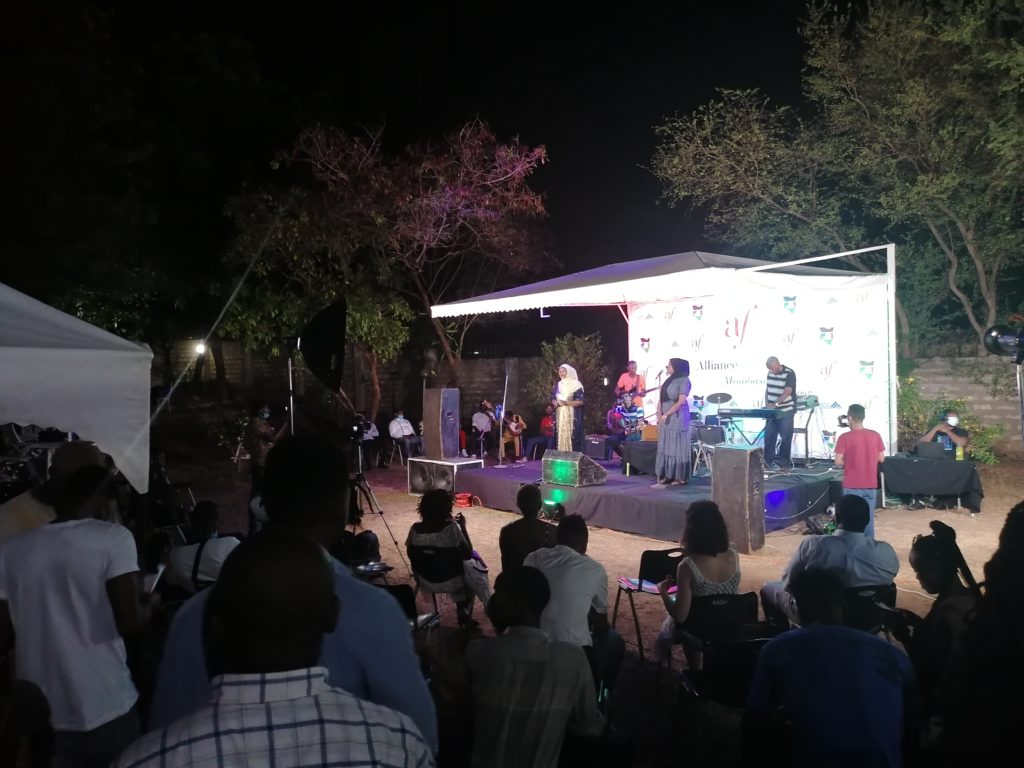
Der Impact
Was bleibt? Ll:”Wenn die Buchmesse ein Erfolg war, liegt es auch daran, daß der Bedarf danach groß ist, dass ein Austausch wichtig war und die Präsentation von Literatur einen Ort gefunden hat.” Dieser Ort soll auch in Zukunft bleiben. Auf dem Gelände der AF soll ein Buchladen entstehen mit kulturellen Veranstaltungen zum Thema Literatur . Auch soll es künftig mehr Präsenz der Literatur in der Stadt geben. Für die kommende Buchmesse ist auch ein Literaturpreis geplant. Es sieht so aus, als ob der Flamingo die Flügel ausbreitet. Die kleine, feine Buchmesse war ein Ereignis für Mombasa. Und sie wird hoffentlich in Ostafrika einen klingenden Namen bekommen: Heroe Book Fair. Auf ein Neues!
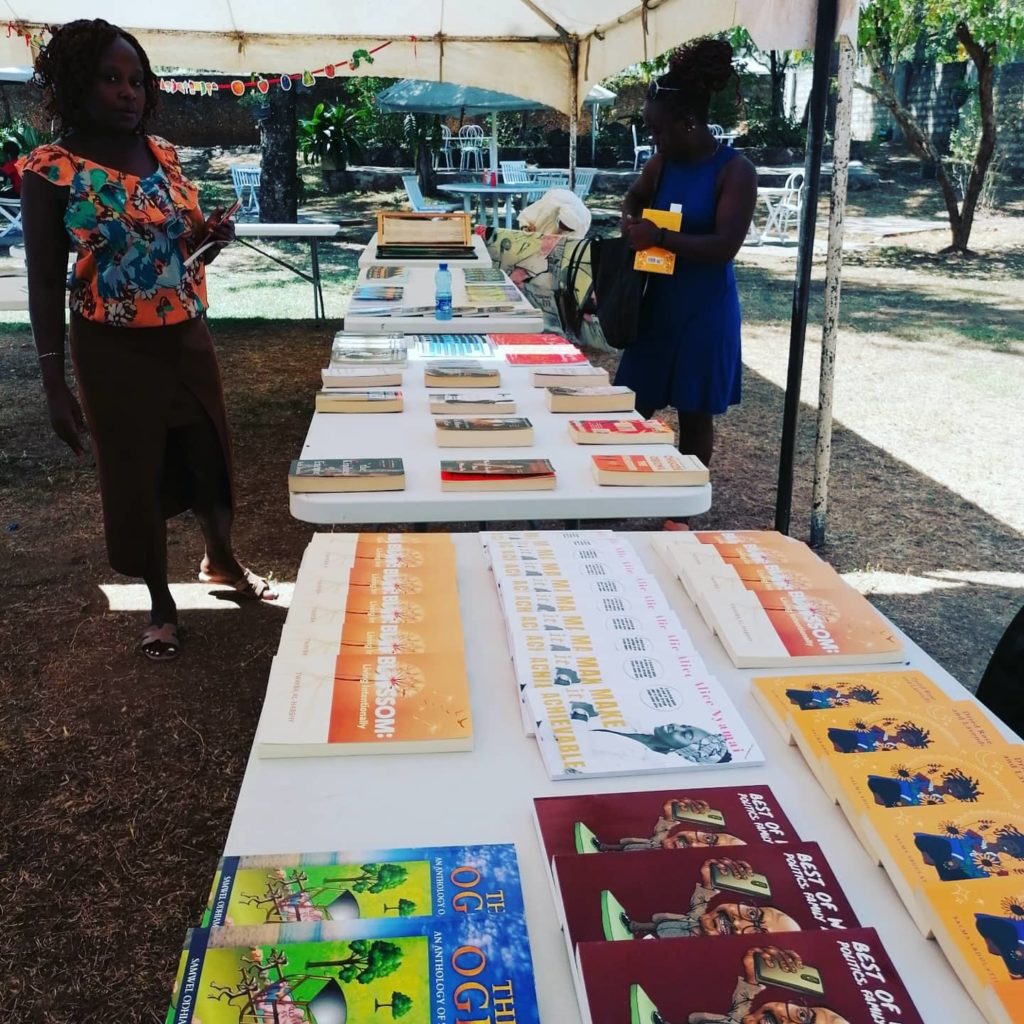
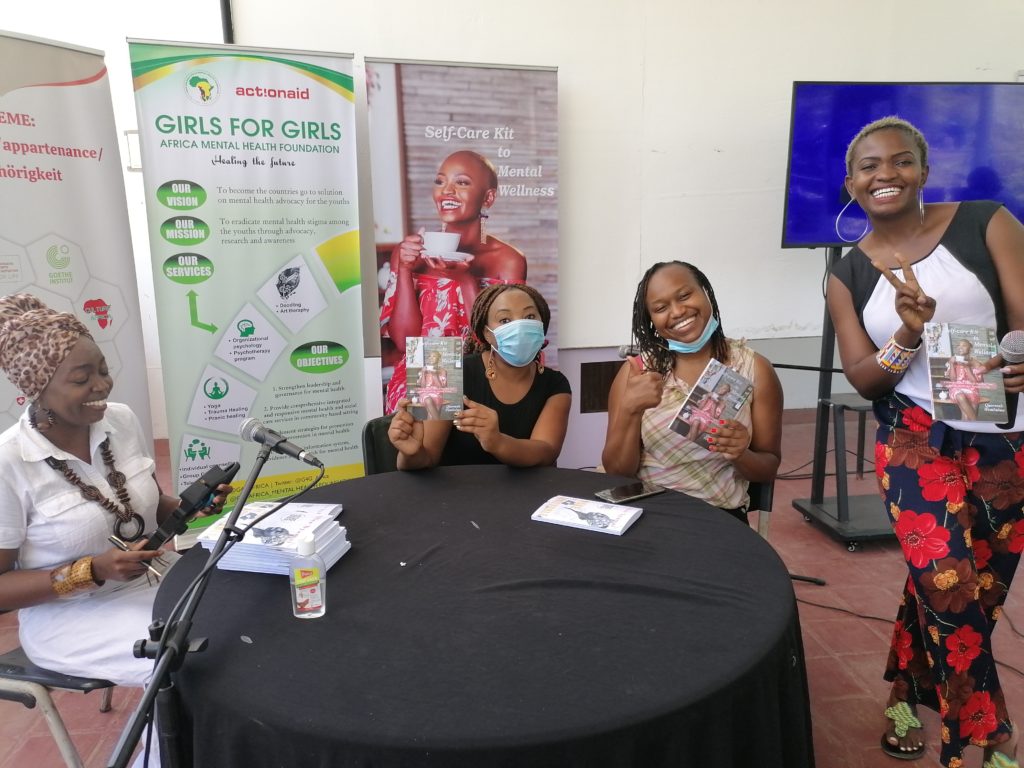
Heroe Book Fair 2021 in Mombasa
from 22.3. to26.3.2021 the heroe book fair took place for the first time in Mombasa, Kenya. Cultureafrica.net was not only partner of the book fair, but also on site. A balance.

The idea
It was an idea. A book fair for East Africa. Originated in the north of Kenya, in Nakuru. Founder Lorna Likiza had the flamingos of Lake Nakuru in mind when she gave the fair its name: Heroe Book Fair. Heroe is the Swahili word for flamingo. And there are plenty of them at lake Nakuru. There, in Nakuru, the idea behind the 2020 fair was to bring writers, publishers and visitors together in one place. What sounds rather ordinary to European ears is a challenge, especially in regions like Kenya. It must be said that the fiction field, the novel, short story and poetry are indeed widespread throughout the country and the continent. In the bookstores, however, the nonfiction sector, i.e., nonfiction, school and university books dominate the market. Literature in the niche, just outside the capital, that is the reality in many African countries. And the special challenge for a new book fair outside Nairobi. And then Corona. Could that go well?
Due to the pandemic, the fair had to be postponed again and again. The financial resources were scarce, then cancelled altogether. But Lorna Likiza did not give up so quickly.
A new idea, a new place was found: the grounds of the Alliance Francaise in the Kenyan coastal city of Mombasa was that place. A book fair under palm trees, not the worst place for such an event. The theme of the fair was “belonging”. A motto that is on the minds of many writers and visitors and thus hit the nerve of the time.
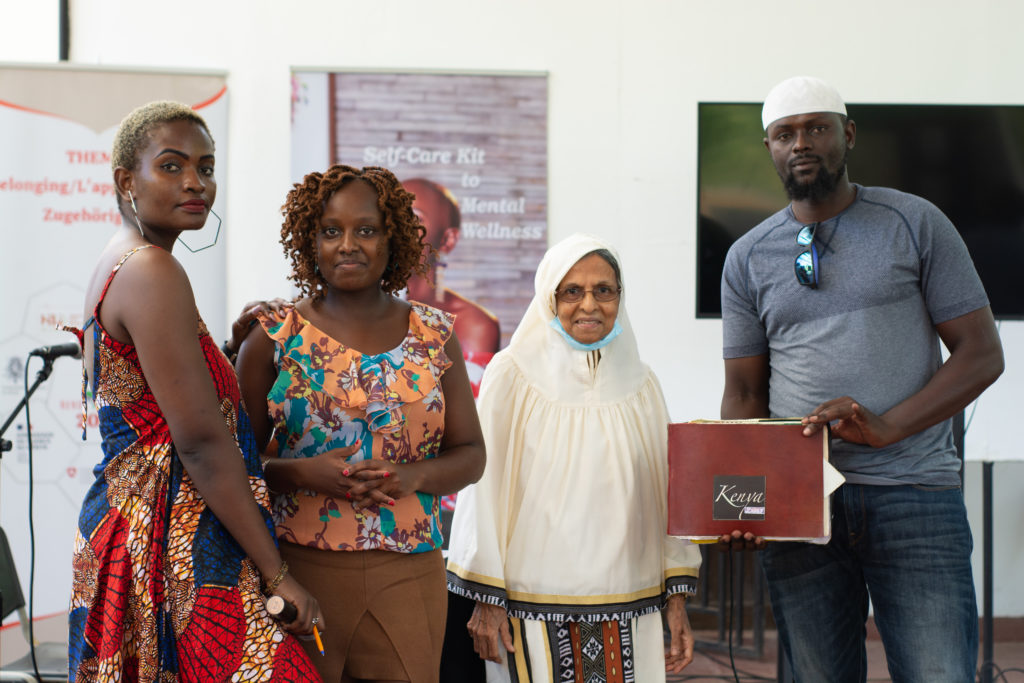
With a little help…
With the financial and logistical support of several partners, including the Alliance Francaise, the French Embassy, the Belgian Embassy, the German Goethe Institute, Cultureafrica and the local Hekaya Institute, the project could be managed. The program was coordinated with the “Week of Francophonie” taking place that week. And: the fair took place! Book fair director Lorna Likiza: “The fact that the fair could take place despite all the adversities of the Corona pandemic borders on a miracle. Until the very end, it was not entirely clear whether the Kenyan government would tighten the Corona measures and the fair would have to be cancelled or postponed once again. All program points could be realized. There were some drawbacks with the audience. That was not allowed to be too numerous, one of the conditions.”
Lucky coincidence: On the last day of the fair, a tightening of measures in Kenya was announced after all. It was serendipitous timing. A week later, things would have looked different. Because despite the hygiene concept, it would now no longer have been possible. But as it was, it took place.

The ambitious program of the fair, namely to present the diversity of the East African, partly also the Pan-African book world in its variety, also found a good response among the participating writers. Lorna Likiza: “The fact that all the announced program items took place, the sometimes elaborate virtual panel discussions with women authors from Africa and the diaspora worked out, and there were no cancellations, shows me how much women authors appreciate the existence of a book fair in Africa.” But the themes of the fair were also well chosen.

But it also felt like a real fair; there were visitors, people met and talked to authors, there were discussions and also: books! Real books to buy and look at. From well-known publishers, small publishers and self-publishers. And the artfully designed books of the already legendary Themina Kader, who despite her age of over eighty years was constantly present and presented her art in the forum and proudly presented the art books. It became official every morning, when the national anthem was played for the day of the fair. A bit unusual but also solemn.

The themes of the fair
The heart of the fair were the readings and panel discussions. They were on very different topics. By the way, all of them are available on the Youtube channel of the heroe book fair for listening and reliving.
It started on Monday with the topic: “The Part Ethnicity Plays In African Literature”. Participants were T.J. Benson (Nigeria), Sihle Ntuli (South Africa) and Caroline Numuhire (Rwanda). The leader of the discussion was: Ibrahim Babatunde Ibrahim (Nigeria ).

The second panel was chaired by Audrey Shipp, founder of the Los Angeles-based US literary platform Decolonial Passage. A forum for diaspora women writers.
Topic: The Impact of Race and Identity on Black Literature.
Again, an international field of participants: Brenda J. Cyprian “Shadow Resistance” – USA, Rochelle Riley “The Burdens” – USA, Hassan Ghedi Santur “The Youth of God”, Canada, Tete Loeper “Barefoot in Germany”, Germany, Nathaniel Annan Dadson “Like Apples of Gold in Pictures of Silver” – USA.
The authors all read from their books. This made it easier for the viewers and listeners to follow the conversation.
There were other panel discussions on the topic: The State of Poetry Translations in Africa
with Panel moderator Richard Ali from Nigeria. Participating authors were: Takudzwa Goniwa – Zimbabwe, Michael Onsando – Kenya, Abigail Arunga – Kenya, Jaliya the Bird – Angola .
The Week of Francophonie was the occasion for the panel: Are Francophone Writers from Africa Underrepresented? Panel moderator was : Maeline Le Lay from the Institut Franchise in Nairobi. The panelists were: Kristen Stern – Editor, “Africa In Words” – USA, Ernestine Vera KG- Burundi, Max Lobe – Writer, Switzerland, Edwige Dro – Co-Founder, Abidjan Lit – Ivory Coast, Mathe Kisughu – Writer and Editor- DR Congo.

The final panel discussion was on the topic: Publishing in Africa and the Black Diaspora.
Panel moderator was Africa’s best known literary blogger, James Murua – Kenya, Joining the panel were Azafi Omoluabi – Parressia Publishers – Nigeria, Ese Emmanuel – Bright Lights Books London, UK, Caroline Gatwiri Weloba – Pearson East Africa – Kenya,, Lorraine Sithole – RedSoil Publishers – South Africa, Dzekashu MacViban – Bakwa Books – Cameroon.

Keynotes and Book Readings
Two keynote speakers to the fair and there were. This time the so-called keynotes were given by: Scholastique Mukasonga from Rwanda/France, author of the bestseller “Notre Dame du Nile” on the topic of “Belonging”. And Salma Abdulatif, author from Kenya gave the second keynote: “Finding Home beyond Stereotypes & Identity Crisis”. A striking number of women made their mark on the fair. Not only at the keynotes. They also set the strong tone overall in modern African literature. Chimamanda Ngozi Adichie has become a beacon there. But Scholastique Mukasonga, Petina Gappah, Oyinkan Braithwaite, Yvonne Owuor and many others have also made the leap into the international literary world.

Almost all the female authors were present at the Book Launches. Only Max Lobe was virtually connected from Switzerland. Three so-called motivational books and the literary journey “A long Way to Douala” were presented to the public for the first time. Very engaging was the presentation of Boniface Nyamweya, who presented “Her Question Pills” as an almanac of the man it. From the girls4girls project, Queentah Wambulwa presented the Self-Care Kit to Mental Health, an engaging book that gives people a way to help with mental health problems.

And two books that also have as their theme the belief in success in people, even after setbacks: “Be the 1%” by Mohammed Otieno and “Make it Achievable” by Alice Nyamai. The literary theme of the fair, “belonging” was echoed in the essay of the same name written by Lorna Likiza. In a reading followed by an engaging discussion on sometimes uncomfortable topics such as: Respect, Ethnicity, Minorities, Skin Color and Discrimination. Another discussion took place on site about the role of LGBTQ in African literature. Cultureafrica presented an inventory of African culture in Germany.

Readings, real or virtual, the “Book Readings” took place by women authors from all over Africa. Short Stories from “The Ogre” series by Samwel Ochand. Prominent as “Kinky Roots” from Ingrid Arlington/South Africa, On two days, students from the Mombasa region and virtually from Germany and Switzerland also participated in the readings. The Future Hope of Montessori School was on site with many participants and read and discussed engaged on the spot.
Mombasa, Home of Swahili Culture
The area of Swahili culture and the role of literature was also a big topic. The collective book project Kas Kazi was presented. A novel, a literary road trip along the Swahili Coast. The heart of Swahili culture, with Mombasa as one of the pillars. Over 100 million people speak this language in many countries in East Africa.
Abu Amirah of the Hekayah Initiative presented the book, which, by the way, is now being translated into German.

The closing ceremony was kept smaller for well-known reasons. Besides a local band in Swahili style, a Congolese Rumba band performed and made everyone sweat again. If that was still necessary, because the thermometer at the fair never showed less than 25 degrees.

The Impact
What remains? Lorna Likiza: “If the book fair was a success, it is also because there is a great need for it, that an exchange was important and that the presentation of literature found a place.” This place should remain in the future. A bookstore is to be built on the grounds of the AF with cultural events on the theme of literature . There should also be more presence of literature in the city in the future. A literature prize is also planned for the upcoming book fair. It looks like the flamingo is spreading its wings. The small, fine book fair was an event for Mombasa. And it will hopefully make a resounding impression in East Africa: Heroe Book Fair!

Hans Hofele
